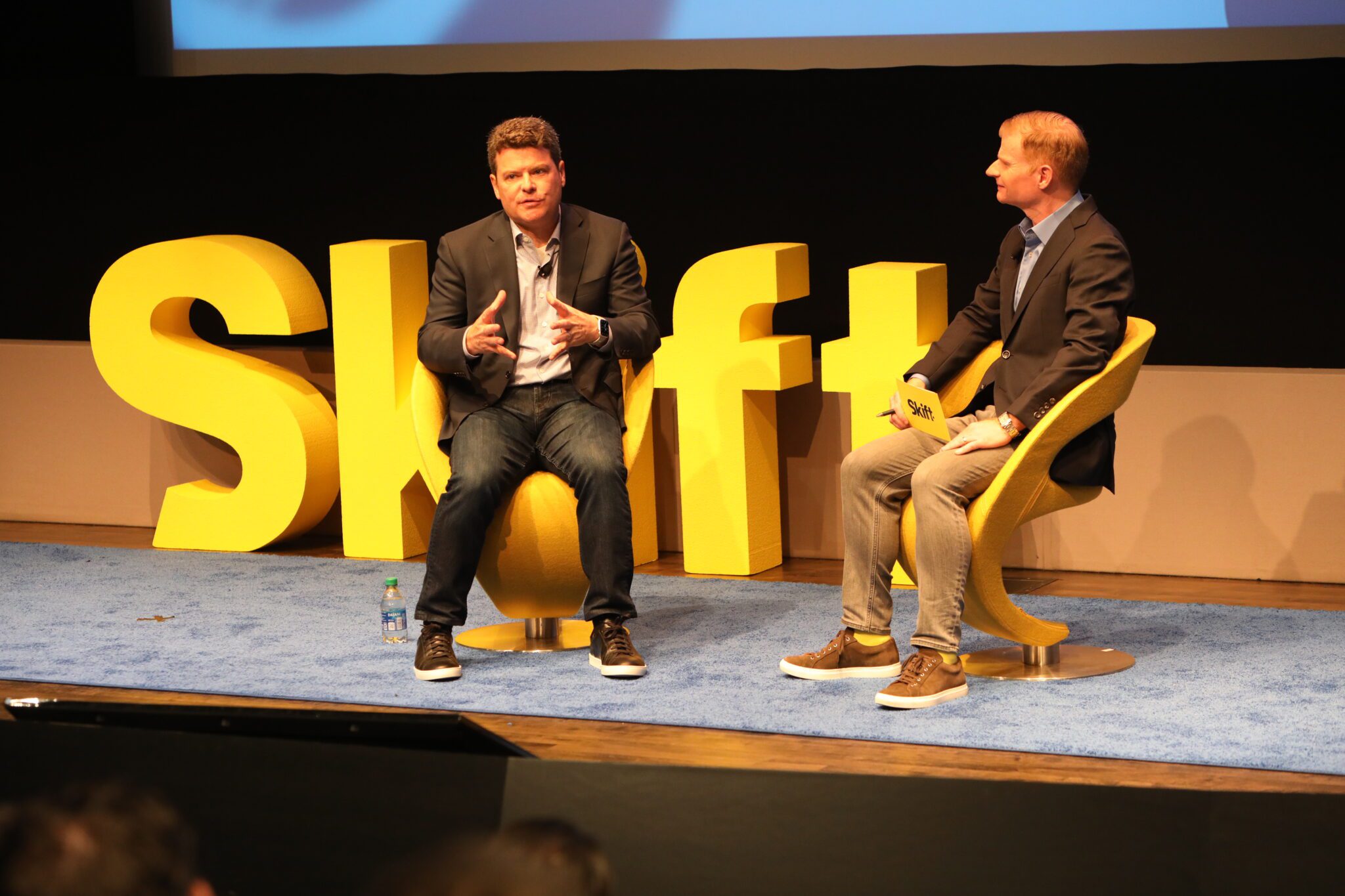Marriott’s Not Selling Just Rooms Anymore – Inside Its Bet on AI

Skift Take
Marriott wants to be the hotel industry's Build-A-Bear Workshop.
The hotelier is looking to tap into generative AI and technology to reinvent itself as a travel retailer, letting customers create bespoke experiences much in the way they do today when booking an airline ticket or when their kids create their own personalized, cuddly Teddy bear.
“It's the biggest tech transformation we've ever done,” Drew Pinto, executive vice president and chief revenue and technology officer at Marriott, said at the Skift Data + AI Summit in New York on Tuesday. “We have a lot of really great products in our company that we sell. Of course, the rooms, but we have experiences, restaurants and bars, golf, spa, yachts, homes and villas, you name it.”
Marriott’s aim to personalize its offerings comes as companies of all kinds race to figure out how to best tap into artificial intelligence. Like its rivals, Marriott is burdened with legacy technology that it has to replace across thousands of hotels and the cost of transformation is enormous.
“The biggest challenge for us has been scaling, so everything from security and privacy to the infrastructure, these large language models are super expensive,” Pinto said. “It's been hard for us to get it out at scale, to figure out how you can make the business case work.”
An IT Transition
The hotelier is also transitioning to Amadeus IT and “attribute-based booking,” in which customers will be able to personalize their stay by selecting high floors or jacuzzis, which Pinto likened to fashioning a Build-A-Bear or a Mr. Potato Head figurine.
Technology has become essential for the company, a fundamental part of its philosophy with Pinto reporting directly to the CEO. That’s not to say that the concierge or check-in desk is going anywhere.
“When you're checking in, we tell the associates that we don't want the guests to see the top of your head. We want them to see your face, but we put them in a situation where they can't. So all those keystrokes they're doing, how many of those are all required because of the process we've set up to check somebody in?” Pinto said.
“We want to automate a lot of those manual tasks that happen at the front desk today, so that they can spend more time with the guests. And it's a really great example that we're building of how you use automation and tech to help assist or augment somebody's job.”
Another area ripe for disruption is search, Pinto said.
“I think you all agree that search is kind of stuck in the past, right? We've been doing search the same way,” he said. “Our reservation system kind of sits there, paralyzed until you tell it where you want to go.”
So Marriott’s playing with its Homes and Villas search function and testing out customer experiences to see what works and what doesn’t and then integrate the best ideas into the main Marriott website.
“It has been a really great way for us to learn a lot of things and to make mistakes and to figure out, ‘How do you do AI at scale.’ This has been a good place to start,” Pinto said.




